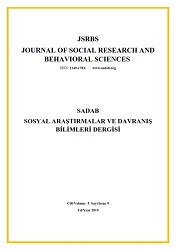Sağlık Sistemlerinin Etkinliğinin VZA ile Ölçülmesi: Gürcistan Örneği
Measuring Efficiency of Health Systems with DEA: The Case of Georgia
Author(s): Fuad SelamzadeSubject(s): Methodology and research technology, Management and complex organizations, Health and medicine and law
Published by: SD Yayınevi
Keywords: Georgia; Health Systems; DEA; Super Efficiency;
Summary/Abstract: The aim of this study is to calculate the efficiency of health service provision of 11 regions of the Republic of Georgia by using Data-Envelopment Analysis with input-oriented, fixed-scale Charnes, Cooper, Rhodes (CCR) and variablescale Banker, Charnes, Cooper (BCC) methods. In the study, efficiency analyzes were conducted using 2017 and 2018 data, super efficiency scores were calculated and potential improvement suggestions were presented for inactive regions. In this study, number of doctors, nurses and hospital beds were used as input, infant mortality rate and number of outpatient services were used as outputs. As a result of the analysis performed by CCR method, 3 regions became effective in 2017 and 2 regions became effective in 2018. As a result of the analysis performed by BCC method, it was determined that 6 regions were effective in 2017 and 5 regions were effective in 2018. In the CCR method, Racha Lechkhumi and Kvemo Svaneti achieved the highest super efficiency score in 2017 and Guria in 2018. In the BCC method, Guria obtained the highest super efficiency score every two years. It is suggested that social policies should be developed to reduce inputs and infant mortality rates in inactive regions.
Journal: Sosyal Araştırmalar ve Davranış Bilimleri
- Issue Year: 5/2019
- Issue No: 9
- Page Range: 265-280
- Page Count: 16
- Language: Turkish

